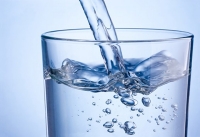Healthy Homes - Drinking Water
Why is drinking water a health issue?
Drinking water comes from a variety of sources including public water systems, private ground water wells, natural springs and bottled water. Clean water is essential to healthy living. Most importantly water is needed for drinking to support a healthy mind and body. Water in the household is also needed for cooking, bathing, clothes washing and house cleaning.
Healthy drinking water
U.S. EPA sets standards that ensure safe drinking water from public water sources. The Tennessee Department of Environment and Conservation’s Division of Water Resources oversees drinking water safety. It trains and inspects the operators that clean drinking water for water utilities. Water utilities are required to inspect water for infectious pathogens, chemical contaminants and disinfectant products on a regular basis. By law, you are to be notified if your public drinking water source fails to meet water quality standards.
Metal water pipes may weaken over time. Let the cold water run for two to three minutes when using tap water the first time each day. This will flush out lead or copper that may have settled over time. Do not use hot water for drinking, cooking or making baby formula. Metals are more likely to dissolve into hot water. It is better to run cold water and then heat it on the stove or in the microwave. For information on how to test your home’s water, call an approved laboratory.
Private drinking water wells
In rural areas, about 95% of people drink water from a private source such as a well or spring. If you get your water from a well, make sure it is clean and safe to drink. Have your water tested for bacteria, viruses and pollutants. If you use a private drinking water well, it is the responsibility of the well owner to make sure it is clean and safe to drink.
Lead in drinking water
Lead can be found in some metal water taps, interior water pipes, or pipes connecting a house to the main water pipe in the street. Lead found in tap water usually comes from the corrosion of older fixtures or from the solder that connects pipes. When water sits in leaded pipes for several hours, lead can leach into the water supply. High levels of lead in tap water can cause health effects if the lead in the water enters the bloodstream and causes an elevated blood lead level. For more information on lead in drinking water, visit the Environmental Protection Agency's Lead in Drinking Water webpage or the Centers for Disease Control and Prevention webpage about lead in water. To learn if your filter will protect you against lead, see the EPA tool for Identifying Point of Use (POU) Drinking Water Filters Certified to Reduce Lead.
If you use your home as a licensed child care facility through the Tennessee Department of Human Services, you are eligible to have your home's drinking water tested for lead for free. To learn more about this opportunity, please visit the WIIN Lead Testing webpage.

Additional resources
Tennessee Department of Health
Waterborne Diseases
www.tn.gov/health/cedep/waterborne-diseases.html
Tennessee Department of Environment and Conservation
Water Resources
www.tn.gov/environment/section/wr-water-resources
U.S. Environmental Protection Agency (EPA)
Ground Water and Drinking Water
www.epa.gov/ground-water-and-drinking-water
Centers for Disease Control and Prevention (CDC)
Drinking Water
www.cdc.gov/healthywater
